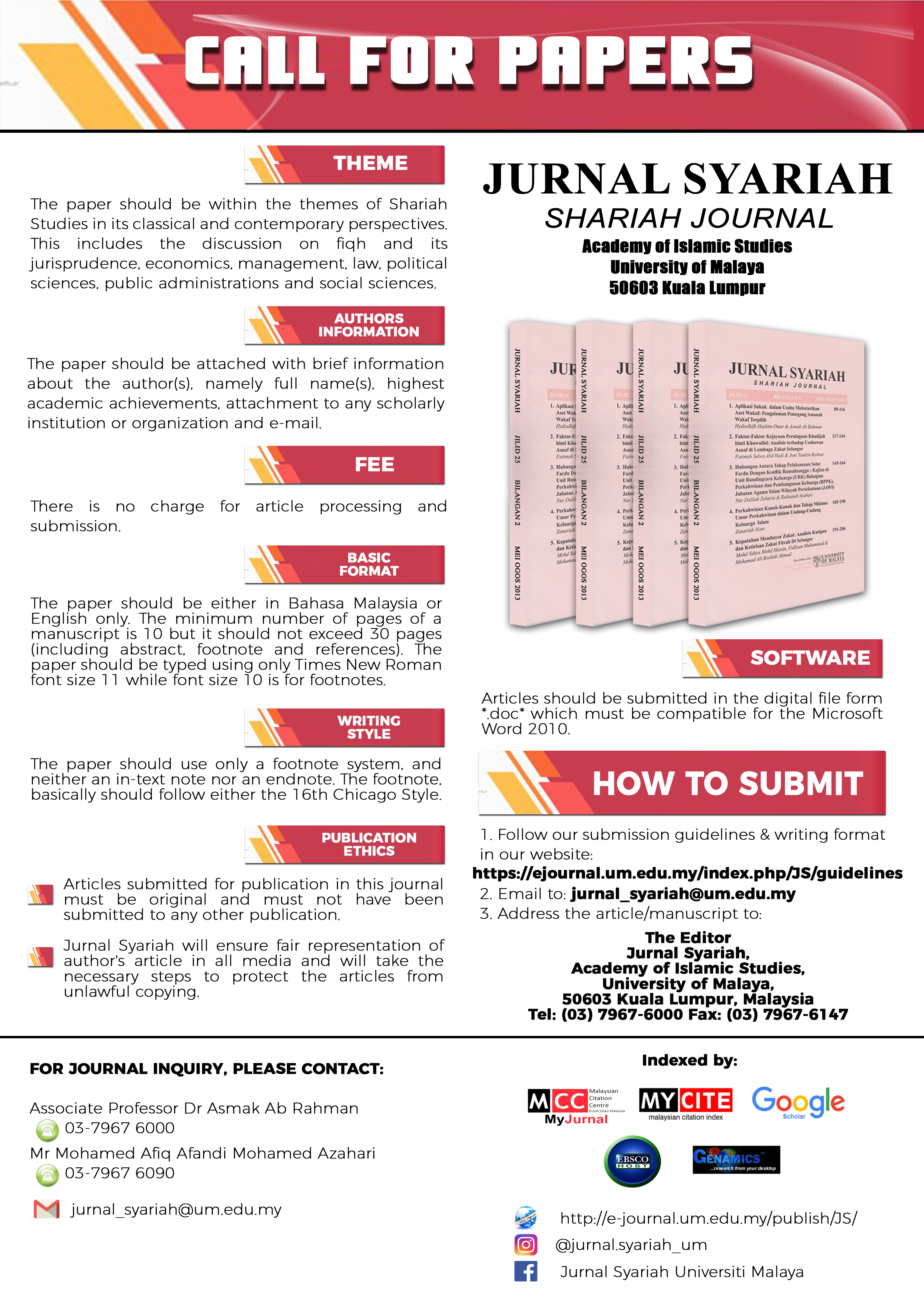THE NEED FOR HIGH CORPORATE GOVERNANCE IN NIGERIAN ZAKÄ€H AND WAQF INSTITUTIONS
DOI:
https://doi.org/10.22452/js.vol24no3.7Abstract
Since the collapse of the Sokoto Caliphate at the hands of the British imperial power, zakāh and waqf in Nigeria have remained underdeveloped. In 1999, when the Zamfara State government declared the implementation of Shariah, these institutions were reestablished. Since then, laws have been enacted for these institutions; particularly between 2000 and 2003. However, annual reports presented since 2000 till date have not been impressive. Owing to this low performance, it is certain what is missing is a high level of corporate governance that protects the interest of all stakeholders, which can help facilitate a institutions’ success. Therefore, zakāh and waqf cannot be neglected. It is against this background that this research examines the corporate governance of Nigerian zakāh and waqf institutions within the context of their existing laws, primary and secondary sources of Islamic law, and contemporary studies on the subject. The methodology applied in this study was a qualitative research method using library materials and the internet. This paper concludes that the zakāh and waqf sectors will perform better and actualize their inherent objectives if high levels of corporate governance are entrenched in these institutions.
Downloads
Downloads
Published
How to Cite
Issue
Section
License

This work is licensed under a Creative Commons Attribution-NonCommercial 4.0 International License.
COPYRIGHT: All rights reserved. Not allowed to be reproduced any part of articles and contents of this journal in any form or by any way, whether electronic, mechanical, photocopying, recording or otherwise without permission in writing from the Chief Editor, Jurnal Syariah.



















